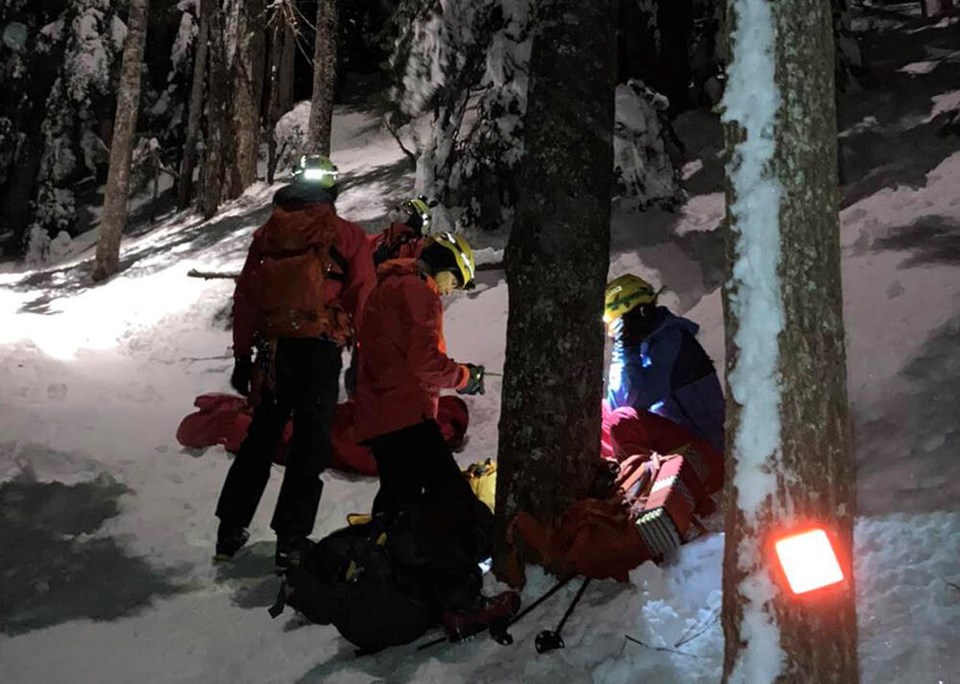North Shore Rescue saved two adventurers from separate life-and-death predicaments in the backcountry Sunday night.
Around 4:30 p.m. Lions Bay Search and Rescue alerted the team to a paraglider who had fallen on the west side of Brunswick Mountain and was snagged in the trees with broken bones.
“He had an unsuccessful launch, which ended up with him basically tumbling off that cliff,” said Mike Danks, North Shore Rescue team leader. “The subject was basically suspended from an old stump. It caught up his lines and stopped him from falling any further but had him precariously hanging upside down.”
Lions Bay team members, including a physician, started making their way to the site on foot, however cold weather and difficult terrain meant that the safest way out would be from above.
Luckily, Talon Helicopter’s Dauphin, which can fly in darkness and hoist rescuers in and out of dangerous terrain, was available. Volunteers got to work giving the man some pain medication and packaging him in a stretcher.
To bring the man back out on foot would have required a complicated rope rescue and a team of about 25, Danks estimated.
“The fact that we had a night vision capable helicopter and hoist capable machine probably saved his life, because getting him out from that area overland would have been incredibly challenging,” he said. “The fact that he is now warm and safe in the hospital is pretty telling.”
Before the call had even wrapped, the team was tasked again, this time for a man who’d fallen while on St. Marks Summit on the Howe Sound Crest Trail in Cypress Provincial Park.
“He was in severe pain,” Danks said.
North Shore Rescue search managers sent in two ground teams, including a physician of their own, while Talon’s helicopter pilots refueled for another night hoist.
They arrived around the same time and worked together to get the man ready for a quick air lift out.
Again, Danks credits the Dauphin and the volunteers’ high level of training.
“You’re dealing with really cold conditions, steep terrain, and it’s icy. And then you have to deal with someone that’s in a stretcher,” Danks said. “It was within an hour that we were able to get him basically back to our Cap Gate SAR Station and handed off to BC Ambulance.”
In the three months that they’ve had provincial approval to do night hoists, Danks said it’s proven to be an incredibly valuable tool, saving hundreds of volunteer hours and overnights in the backcountry while getting injured people the fastest possible medical attention, all with minimal risk to volunteers.
But he warned, the helicopter won’t always be available, leaving everyone at the mercy of the old-fashioned “ground and pound.”
“That’s why we have so many members on our team and that’s why we really push keeping those rope rescue skills high and keeping our members engaged because you never know when you’re going to need the full call out,” he said.
The best way out of the mountains will always be on your own two feet, which means being well equipped is a must, Danks said. Anyone planning to be on the trails in the winter should have microspikes, at the very least, and he recommends hiking poles. They should also have another means of calling for help if they plan to be out of cell range, and be ready to survive a night in the cold, if needed.



